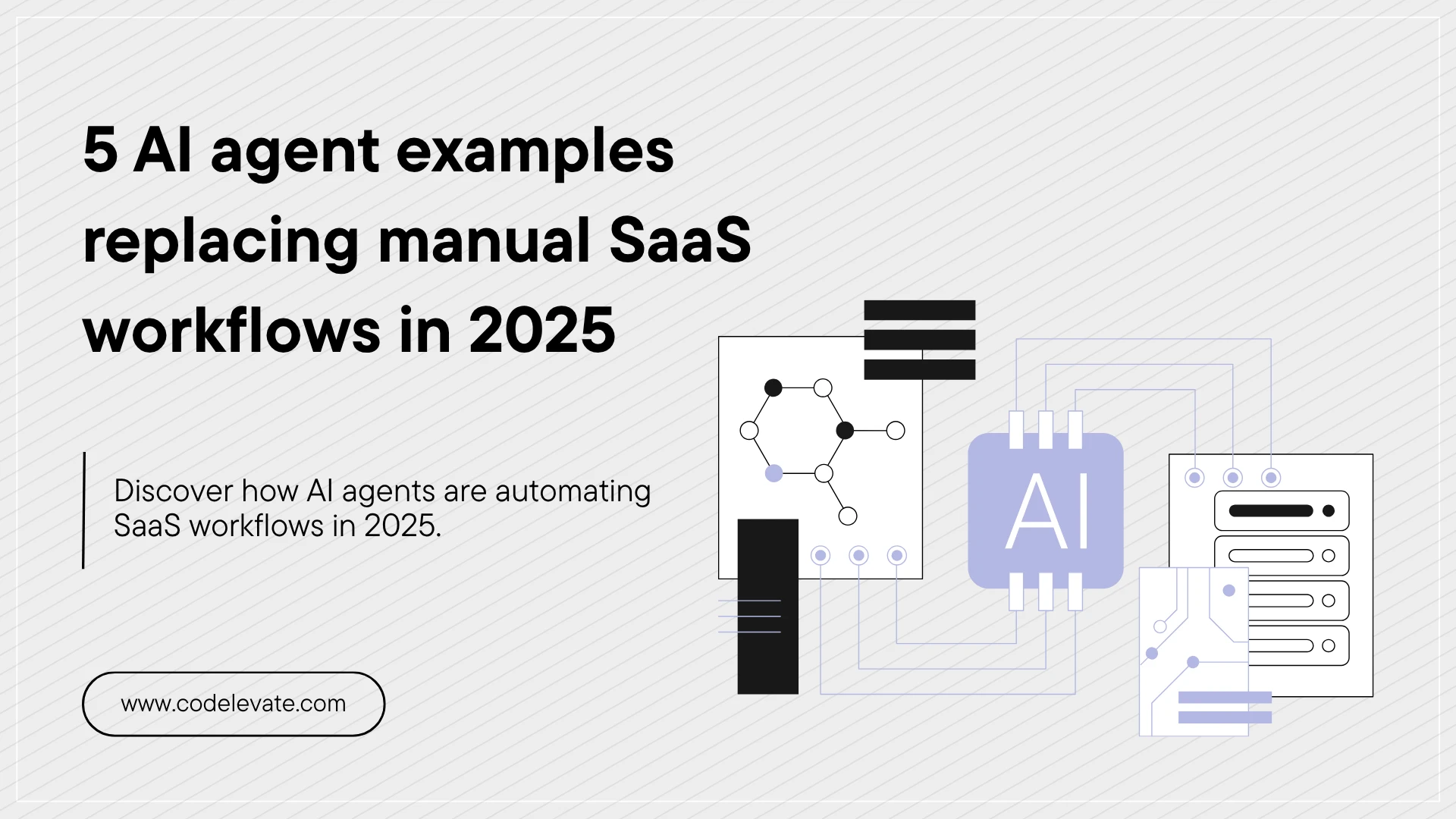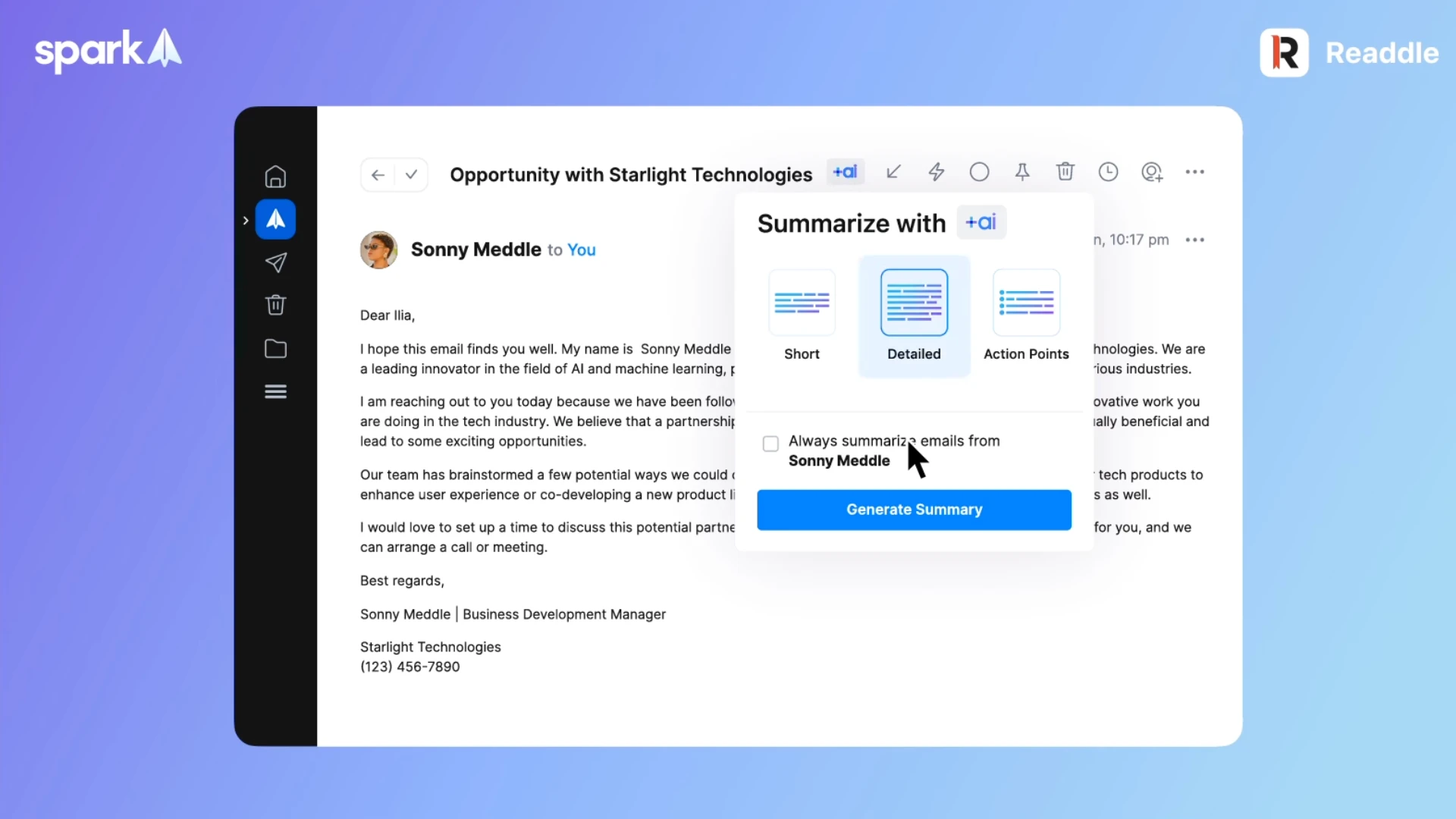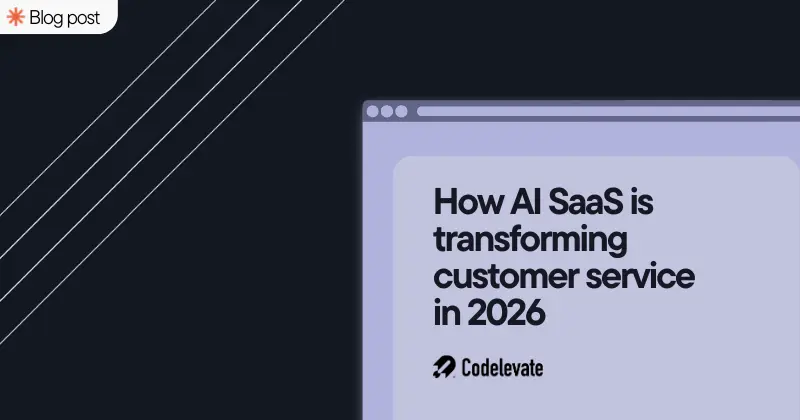5 AI agent examples replacing manual SaaS workflows in 2025
Introduction
SaaS workflows have relied on manual processes for a long time, including data entry, email triage, customer support, reporting, and other repetitive tasks. But 2025 is shaping up to be the year where AI agents step in to take over these chores, giving teams back their time and focus. AI agents are intelligent, goal-driven digital workers that understand context, learn from experience, and act autonomously. Thanks to rapid advancements in large language models (LLMs), these agents can now manage entire workflows that used to require human oversight.
In this article, we’ll explore 5 real-world examples of AI agents already replacing manual SaaS tasks across industries in 2025. We'll break each example down, show what pain it solves, and give you links to tools so you can try them out yourself. Let’s dive in!

What is an AI agent?
Think of an AI agent like a digital teammate—one who listens to your instructions (in plain language), figures out how to get the job done, and improves over time. Unlike traditional automation tools that rely on rigid triggers and actions, AI agents are flexible and adaptable.
They’re great for workflows that involve a mix of:
- Natural language (e.g. emails, chats)
- Decision-making (e.g. “should I send this now?”)
- Context-awareness (e.g. time zones, user preferences)
- Data analysis (e.g. pulling reports, finding trends)
By using tools like OpenAI, LangChain, n8n, and Zapier, teams are building agents that plug directly into their favorite SaaS tools—Slack, Gmail, Airtable, Notion, and more.
Now, let’s look at five powerful examples in action.
1. AI email summarizer

Problem:
We all know that feeling—opening your inbox to 100+ unread emails. Many aren’t important, but you still have to skim them all just in case.
Solution:
AI email agents can now summarize your inbox automatically—grouping key points, tagging action items, and even sending you a morning and evening digest. This is exactly what this Gmail + OpenAI + n8n workflow does. It pulls your emails at a scheduled time, summarizes them using GPT, and sends a short summary straight to Slack or back to your inbox.
Why it matters:
- Cuts email review time by 80%
- Reduces mental clutter
- Helps remote teams stay aligned with asynchronous updates
If you use Outlook instead of Gmail, don’t worry—n8n supports that too.
If you want to explore the best AI summarizer tools, see this article.
2. AI meeting notes agent
.webp)
Source: Krisp.ai
Problem:
Virtual meetings are everywhere in 2025, but taking accurate notes, capturing decisions, and sharing follow-ups still falls to a human (usually the same unlucky person every time).
Solution:
An AI meeting agent can now listen, transcribe, and summarize your meetings in real-time.
This Recall.ai + OpenAI + Supabase workflow does just that. It transcribes your Zoom, Google Meet, or Microsoft Teams call, extracts the important parts, and stores them in a searchable format.
Why it matters:
- Ensures no important decision is lost
- Speeds up post-meeting follow-ups
- Boosts accountability across teams
No more, “Who was supposed to do that again?”
For the best AI meeting note takers, see this article.
3. AI-powered customer support assistant
.webp)
Source: Brainvire.com
Problem:
SaaS companies often get overwhelmed by customer support emails. Many questions are repetitive and easy to answer, but each still needs a human response.
Solution:
An AI support agent can now analyze incoming tickets and draft smart replies by referencing your internal documentation.
This Gmail + OpenAI + Google Drive agent reads the customer’s query, searches your knowledge base, and crafts a helpful draft reply—all ready for a support rep to review and send.
Why it matters:
- Slashes first-response times
- Reduces support load without hiring more staff
- Increases customer satisfaction with faster replies
This AI agent doesn't replace your team—it supports them.
4. AI agent that chats with your airtable database
.webp)
Problem:
Need to find specific data in Airtable, but don’t remember the exact filters or views? Or maybe your team wastes time searching and asking around.
Solution:
This Airtable + OpenAI agent lets you chat with your Airtable database. You can ask it things like:
- “Which customers signed up last month?”
- “Show me top-performing products by region”
It interprets your question, pulls the relevant data, and returns an answer in plain English (or a chart).
Why it matters:
- Makes Airtable feel like a conversation, not a spreadsheet
- Empowers non-technical team members
- Saves time digging through tables
You can even fine-tune it to your dataset with specific examples, so it gets smarter over time.
5. AI agent for SIEM alert enrichment in cybersecurity
Source: YouTube
Problem:
Security teams face hundreds of alerts from SIEM tools daily. Most are noisy and lack context, making it hard to prioritize threats.
Solution:
This Zendesk + MITRE + OpenAI security agent automatically classifies security alerts using the MITRE ATT&CK framework and adds helpful context like:
- Which technique is being used?
- What systems are affected?
- Suggested response steps
It does all this before a human ever sees the ticket.
Why it matters:
- Speeds up incident triage
- Helps smaller companies stay secure without a big security team
- Reduces false positives and alert fatigue
If your alerts don’t come from Zendesk, you can customize the workflow to work with your preferred tool—like Jira or a chatbot.
Honorable mentions
While those five agents are making the biggest splash, here are a few other honorable mentions making waves in 2025:
- AI Data Analyst for Spreadsheets: Transforms spreadsheets into searchable insights.
- Chat With GitHub’s API Docs: Instantly answers developer questions using real-time docs.
- AI Telegram Bot with Long-Term Memory: Smart bots with memory built right into your messaging apps.
Want to learn more? Explore our article on Comprehensive Guide on AI Agents and see how AI can be the next step in your company’s growth.
Conclusion
AI agents are no longer hype or experiments—they’re real, usable tools transforming how we work. From managing inboxes and summarizing meetings to automating cybersecurity tasks, these digital teammates are becoming essential.
Here’s what makes them special:
- They’re easy to set up with tools like n8n, Zapier AI, and LangChain
- They speak your language (literally) and learn from your data
- They scale with your business—no extra hiring needed
Whether you’re in operations, marketing, product, support, or security, there’s probably an AI agent that can help you today.
Curious about implementing AI solutions for your business? Book a free strategy call with us and start your AI-powered journey today!


.webp)


.svg)




